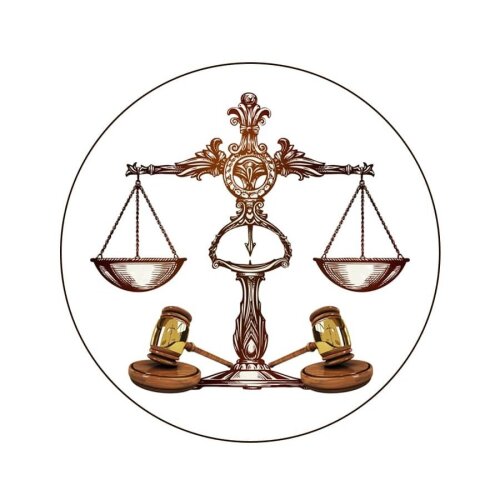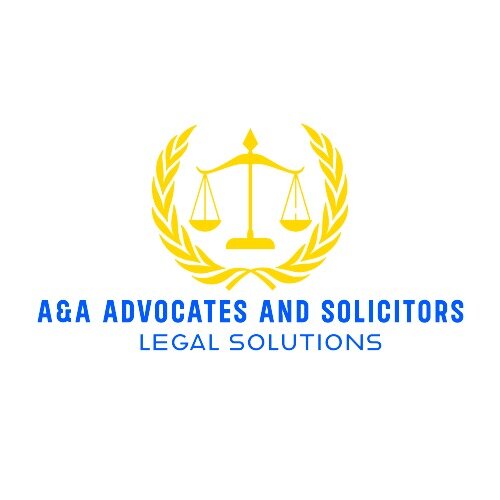Best Immigration Lawyers in Accra
Share your needs with us, get contacted by law firms.
Free. Takes 2 min.
List of the best lawyers in Accra, Ghana
About Immigration Law in Accra, Ghana
Immigration law in Accra, Ghana, is primarily governed by the Ghana Immigration Service, which operates under the Ministry of the Interior. It involves the regulation of entry, stay, and the exit of people in the country. Accra, being the capital city, is a significant hub for international travel and immigration. The laws and regulations are designed to control the flow of foreigners into the country, to contribute to national security, and to promote socio-economic growth.
Why You May Need a Lawyer
Legal assistance in immigration matters may be necessary in various situations, such as:
- Applying for a visa or a residence permit
- Navigating the complexities of refugee or asylum status
- Resolving issues related to deportation or detention
- Seeking naturalization or Ghanaian citizenship
- Dealing with employment-related immigration for businesses
- Addressing overstay and regularization of status
An immigration lawyer can provide guidance through these processes, help with documentation and applications, and represent individuals in legal proceedings.
Local Laws Overview
The key aspects of immigration law in Accra, Ghana, include:
- Visa Requirements: Regulations about who requires a visa to enter Ghana and the different types of visas available.
- Residence Permits: Policies concerning the application for and renewal of residence permits for foreign nationals.
- Work and Business: Guidelines on acquiring the necessary permits and documentation to work or establish a business as a foreign national in Ghana.
- Deportation: Procedures and rights related to the deportation of non-citizens.
- Asylum Seekers and Refugees: Laws covering the protection and rights of asylum seekers and refugees in Ghana.
Frequently Asked Questions
How do I apply for a visa to Ghana?
Applications for a Ghanaian visa must typically be completed through a Ghanaian diplomatic mission in your home country or through an online portal if available. Applicants need to provide the necessary documents and fees.
What types of visas are available?
Ghana offers several types of visas, including tourist visas, business visas, student visas, and transit visas. The right visa for you depends on the purpose of your visit.
Can I work in Ghana as a non-citizen?
Yes, but non-citizens need to acquire a work permit and a residence permit to be legally employed in Ghana.
How do I apply for asylum in Ghana?
To apply for asylum, you must contact the Ghana Refugee Board for an assessment of your claim for refugee status.
Can I acquire citizenship through marriage?
Marriage to a Ghanaian citizen can make you eligible to apply for citizenship, but it's not automatic and other conditions must be met.
What should I do if my visa has expired?
You should contact the Ghana Immigration Service immediately for guidance on how to regularize your visa status to avoid penalties or deportation.
Is dual citizenship allowed in Ghana?
Yes, Ghana recognizes dual citizenship for individuals who qualify under its legal framework.
What is a resident permit and do I need one?
A resident permit is a document that allows a non-Ghanaian to reside in the country for a specific period. It is needed for those who intend to stay in Ghana for extended periods, including those working or studying in Ghana.
How can I renew my residence permit or work permit in Ghana?
Renewals can typically be done through the Ghana Immigration Service before the current permit expires, following the submission of required documents and payment of fees.
What legal protections do refugees and asylum seekers have in Ghana?
Refugees and asylum seekers are protected under Ghanaian law and international treaties which Ghana has ratified. They are entitled to safety and security and the right to not be forcibly returned to their country of origin.
Additional Resources
Individuals seeking immigration legal advice may find the following resources helpful:
- The Ghana Immigration Service (GIS) for regulations and application processes
- The Ghana Refugee Board for asylum-related matters
- Local non-governmental organizations specializing in immigrant and refugee rights
Next Steps
If you need legal assistance in immigration matters:
- Compile all relevant personal documentation, such as passports, visas, and any legal notices received.
- Contact a reputable immigration lawyer or law firm with experience in Ghanaian immigration law.
- Consider reaching out to the embassy or consulate of your home country for guidance.
- Visit or contact the Ghana Immigration Service or the Ghana Refugee Board for assistance with specific applications or inquiries.
- Document any steps taken and keep copies of all communications and filed documents.
Lawzana helps you find the best lawyers and law firms in Accra through a curated and pre-screened list of qualified legal professionals. Our platform offers rankings and detailed profiles of attorneys and law firms, allowing you to compare based on practice areas, including Immigration, experience, and client feedback.
Each profile includes a description of the firm's areas of practice, client reviews, team members and partners, year of establishment, spoken languages, office locations, contact information, social media presence, and any published articles or resources. Most firms on our platform speak English and are experienced in both local and international legal matters.
Get a quote from top-rated law firms in Accra, Ghana — quickly, securely, and without unnecessary hassle.
Disclaimer:
The information provided on this page is for general informational purposes only and does not constitute legal advice. While we strive to ensure the accuracy and relevance of the content, legal information may change over time, and interpretations of the law can vary. You should always consult with a qualified legal professional for advice specific to your situation.
We disclaim all liability for actions taken or not taken based on the content of this page. If you believe any information is incorrect or outdated, please contact us, and we will review and update it where appropriate.
Browse immigration law firms by service in Accra, Ghana
Accra, Ghana Attorneys in related practice areas.

















